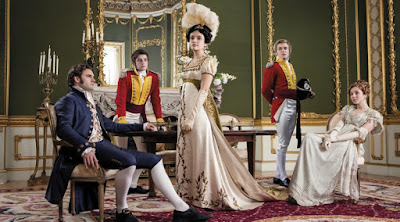John Harries's Book of Incantations (or bits of it) is held in the National Library of Wales. All of the manuscript pages can be read online, if you are persistent and can cope with the rather strange online reading images...........
https://www.library.wales/discover/digital-gallery/manuscripts/modern-period/john-harries-book-of-incantations/?fbclid=IwAR11K2aaH0gztZklWkH8TfDiSFTIM1-Qc_-SDfAq9Z6vU361TduC4uDtGJg
Here is the accompanying text, which is of course authoritative.
======================
John Harries' Book of Incantations
Reference: NLW MS 11117B
A manuscript volume from the library of John Harries (d. 1839), of Pantcoy, Cwrtycadno, Carmarthenshire, astrologer and medical practitioner, containing many illustrated spells and astrological signs.
John and Henry Harries
The Harries family were famous throughout Wales and neighbouring counties on the English border as highly professional medical practitioners, clever surgeons and skilful astrologers who held an important position in society. They became renowned for their ability to predict the future, recover lost or stolen property, combating witchcraft, and invoking benign spirits, and as a result were severely condemned by the mainstream religious people of the 19th century.
John Harries (Shon Harri Shon) (c.1785–1839) was probably born at Pantycoy, Cwrtycadno, Carmarthenshire, and was baptised at Caio on April 10th 1785. He was the eldest child of Henry Jones (Harry John, Harry Shon), Pantycoy (1739-1805), a mason, and his wife Mary Wilkins. He was educated at The Cowings, Commercial Private Academy, Caio, and at Haverfordwest grammar school, but it's not clear where he studied medicine before returning to Caio to establish his practice.
He is said to have kept one of his books padlocked and hidden away, and only dared open it once a year in a nearby secluded wood where he would read various incantations from it to summon forth spirits. Once opened, the book was said to create a very severe storm. This led to the notion that the Harries' derived their power from this large thick volume of spells, bound with an iron chain and 3 locks. J. H. Davies mentiones in his book Rhai o Hen ddewiniaid Cymru published in 1901, that when he visited Cwrtycadno a few years previously, the only book that he found that resembled this book of spells was an old black book with two locks that was the size of a family Bible, that contained miscellaneous medical equipment. He suggest that this was the aforementioned book. In her essay, Ithiel Vaughan-Poppy states that according to family tradition the book is housed at the National Library of Wales, but no record of it has been found at the Library.
It is reported that John Harries had a premonition that he would die by accident on 11 May 1839 and to avoid this happening he stayed in bed all day. The house caught fire during the night, and he died.
John Harries' son Henry Gwynne Harries (c.1821-1849) was also a well-known physician and 'cunning man'. He was baptised on 7 November 1821, and was also educated at The Cowings and at Haverfordwest grammar school before possibly attending London University. He died from consumption on 16 June 1849 aged 28.
His other son, John Harries, (c.1827-1863) was the last of the renowned cunning-folk of Cwrtycadno, who dabbled a little in astrology 'but never shone’ (NLW MS 11119B), and it is suggested that he traded on the reputation of his father and older brother.
The Manuscript
John Harries’ holograph book of incantations (NLW MS 11117B) was donated to the Library in 1935 as part of a larger collection of manuscripts and papers (NLW MSS 11701-11718) from the library of John and Henry Harries. It shows how the ‘cunning man’ could cause benign spirits to appear, listing the attributes of each spirit, with diagrams that represent the named spirit to be conjured, astrological signs and calculations, bills and leaves from ledgers, 1814-31, a printed final notice used by him in calling in accounts, Prophetic Almanack, 1825, etc. The volume also contains memoranda and calculations, 1849-56, and the bidding letter of Rees Evans of Bwlchyrhyw and Anne Thomas of Esgereithry, Caio, Carmarthenshire, 1859. NLW MS 11117B is not the large book of spells described by the contemporary observers, but Lisa Tallis suggests that as the manuscript has been re-bound, it may not resemble the original, and that the first 22 pages of this manuscript may be part of John Harris' conjuring book which Ithiel Vaughan-Poppy states is housed at the Library.


Related Manuscripts:
NLW MSS 11701-11718 include records of patient prescriptions and payments, draft horoscopes, a printed astrological almanac, patient correspondence, notes and transcripts of medical lectures and medical treatise, general account books, miscellaneous papers, etc.
NLW, Cwrtmawr MSS 97A, The Book of Harries, Cwrtycadno
Prescription book of John Harries (c.1785–1839)
NLW, Cwrtmawr MS 672A
A volume containing transcripts of a medical treatise on 'Galvanism', a series of astrological texts, and extracts from 'Sibly's Astrology', partly in the hand of John Harries (c.1785–1839).
Bibliography:
NLW MS 11119B: Arthur Mee, Harrieses of Cwrtycadno
NLW Facs 374/14: Family death certificates, 1839-1863
NLW MS 14876B: Genealogical notes by the Rev. Henry Lloyd, vicar of Caio
NLW Misc Rec. 329: Ithiel Vaughan-Poppy, "The Harries Kingdom - Wizards of Cwrtycadno," unpublished essay, 1976, pp. 8-12, 15-16
K. Bosse-Griffiths, Byd y Dyn Hysbys – Swyngyfaredd yng Nghymru, 1977
J.H. Davies, Rhai o hen ddewiniaid Cymru, 1901
Richard C. Allen, Harries, John (c.1785–1839), ODNB, viewed 6 Nov 2013
Richard C. Allen: 'Wizards or Charlatans - Doctors or Herbalists? An Appraisal of the 'Cunning Men' of Cwrt y Cadno, Carmarthenshire', North American Journal of Welsh Studies, Vols I, II (Summer 2001) viewed 6 Nov 2013
Lisa Tallis, 'The 'Doctor Faustus' of Cwrt-y-Cadno: a new perspective on John Harries and popular medicine in Wales', Welsh history review, Vol. 24, no. 3 (June 2009), pp. 1-28
Emrys George Bowen,
Harries, Henry (d. 1862), Welsh Biography Online, viewed 6 Nov 2013



























